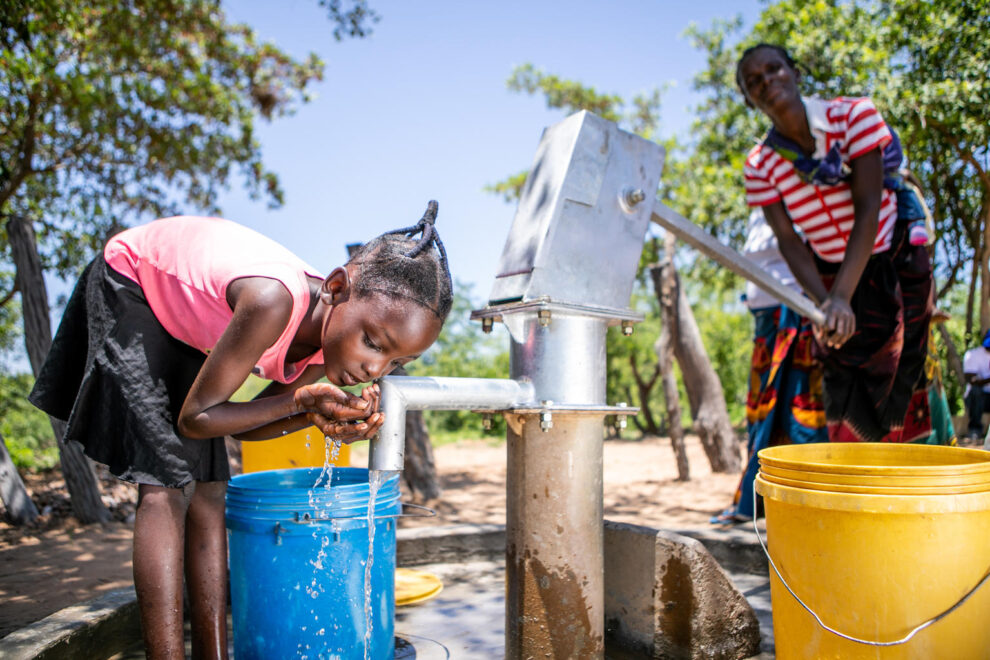The East African country of Tanzania is facing a significant challenge of water scarcity. This issue is closely linked to climate change, which is altering weather patterns and exacerbating the already limited availability of water resources.
Climate change has brought about a range of consequences, and one of the most significant is its impact on water resources. In Tanzania, changing weather patterns and unpredictable rainfall have led to increasing water scarcity. Traditional sources of water, such as rivers, lakes, and groundwater, are becoming less reliable through changes in precipitation patterns. Prolonged droughts and irregular rainfall patterns have resulted in decreased water levels, affecting both rural and urban communities.
In this article, we will delve into the pressing issue of water scarcity in Tanzania, explore its impact on the country, and examine the various challenges that arise from it.
Additionally, we will shed light on promising solutions and initiatives that have been implemented to address this issue.
Challenges and risks posed by water scarcity
Water scarcity poses numerous challenges and risks to Tanzanian communities.
Nyakahura in the Kagera Region, a village of approximately 52,000 residents, is facing the detrimental effects of water scarcity. The cost of water in this area is significantly higher compared to the average Tanzanian income. For instance, a 20-liter (5-gallon) bucket of water costs TZS 500 (around USD .20).
Listen, bro, I can’t stay up all night at the well and then come to sell you 60 liters of water for 1,000 shillings. I should sleep at home with my wife. Just imagine! I was supposed to bring 20 containers, but I was lucky to only draw 5 containers!
The above quote was the response from a water seller known as “Mnyokuru,” when I asked him to sell me 60 liters (16 gallons) for TZS 1,000 (USD .40)
Agriculture, which accounts for a significant portion of the country’s economy, is heavily dependent on water availability. As water becomes scarcer, crop yields are declining, leading to food insecurity and economic setbacks for farmers. Furthermore, water scarcity has detrimental effects on public health, as limited access to clean water increases the risk of waterborne diseases, such as cholera and typhoid.
Socio-economic implications
Limited water resources have profound socio-economic implications that extend beyond the obvious water-related challenges. In many cases, it is women and children who bear the heaviest burden of fetching water from distant sources, dedicating countless hours each day to this essential but time-consuming task. As a result, their opportunities for education and personal development are curtailed, trapping them in a cycle of poverty. Moreover, the pursuit of income generation often takes a backseat to securing this basic necessity.
In urban areas, the specter of water scarcity looms large and can lead to social unrest. Communities are pitted against one another in the struggle for access to the limited water resources available. This competition can exacerbate existing tensions and pose a threat to social stability, making it clear that addressing water scarcity is not only an environmental imperative but also a critical aspect of ensuring equitable socio-economic development.
Initiatives and policies to combat water scarcity
Recognizing the urgency of the water scarcity issue, Tanzania has implemented various initiatives and policies to address this challenge. The National Water Policy of 2002 emphasizes integrated water resource management, promoting sustainable development practices for the efficient use of water. The government has also invested in infrastructure projects, such as dams and water treatment plants, to enhance access to clean water. These initiatives aim to improve water availability, increase water storage capacity, and enhance water quality across the country.
Communities in Tanzania have also developed their own solutions and innovations to manage water sustainably. Rainwater harvesting systems, for example, have been implemented in both rural and urban areas to capture and store rainwater for various uses. In addition, community-led water management committees have been formed to ensure equitable distribution and sustainable usage of water resources. These grassroots initiatives empower local communities to take ownership of water management and foster sustainable practices.
The role of international collaborations
Addressing water scarcity in Tanzania requires collaboration on a global scale. International organizations, such as the United Nations, have partnered with Tanzania to provide technical expertise, financial support, and capacity-building initiatives. These collaborations aim to enhance water resource management practices, support climate change adaptation strategies, and improve access to clean water and sanitation facilities in remote areas.
Looking ahead, it is essential for Tanzania to develop adaptation strategies to mitigate the effects of climate change and secure water resources for future generations. Investing in climate-resilient infrastructure, promoting water-efficient technologies, and integrating climate change considerations into resource planning are critical steps. Additionally, raising awareness and educating the population about water conservation and sustainable practices will play a significant role in addressing this issue.
The pressing issue of water scarcity, further intensified by the effects of climate change, stands as a formidable obstacle to Tanzania’s development, economic stability, and public well-being. Nevertheless, a ray of hope emerges through a multifaceted approach that combines government-led initiatives, grassroots community-driven solutions, and collaborations on the international stage.
The key lies in the implementation of sustainable water management practices, where careful allocation and conservation of this precious resource become paramount. Simultaneously, fostering innovative solutions that harness technology and local knowledge can significantly alleviate water-related burdens. Embracing adaptation strategies, such as drought-resistant crop varieties and efficient irrigation techniques, can ensure the resilience of Tanzania’s agricultural sector, which is vital for food security and economic growth.
However, in the face of all this adversity, Tanzania has the potential to secure its water resources, paving the way for a more resilient, prosperous, and sustainable future for its citizens. By harnessing the power of collaboration, innovation, and strategic planning, the nation can navigate the challenging waters of water scarcity and emerge stronger on the other side.
Source : Global Voice











